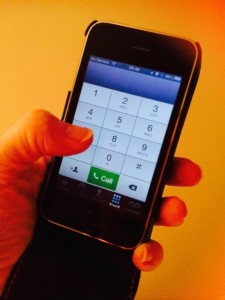In the State of Florida, criminal code Section 812.014 governs the laws pertaining to the crime of theft. Theft is classified as either petit theft or grand theft, depending on the value of the property that was allegedly stolen. It is then broken down in specific degrees of petit theft or grand theft based on the value of the property.
 For example, if you are accused of stealing any property that is valued at more than $300, it will be considered grand theft according to the law. However, this does not mean you will actually be charged with grand theft, as the prosecutors typically have discretion to charge even a grand theft a lesser included offense of petit theft.Smart phones often fall into a category that can be charged either way. The replacement cost of a smart phone is generally more than $300, but people don’t always pay that much for them based upon deals, so it might be appropriate to see it charged as a petit theft. However, because people see the inconvenience of losing a cell phone as so great, this may lead it be charged higher.
For example, if you are accused of stealing any property that is valued at more than $300, it will be considered grand theft according to the law. However, this does not mean you will actually be charged with grand theft, as the prosecutors typically have discretion to charge even a grand theft a lesser included offense of petit theft.Smart phones often fall into a category that can be charged either way. The replacement cost of a smart phone is generally more than $300, but people don’t always pay that much for them based upon deals, so it might be appropriate to see it charged as a petit theft. However, because people see the inconvenience of losing a cell phone as so great, this may lead it be charged higher.
According to a recent news article from The Palm Beach Post, a teen was arrested for stealing his friend’s smart phone and charged with grand theft. This arrest occurred in Fort Walton Beach, Florida. The teen allegedly asked to borrow his friend’s phone and did not return it. The owner of the phone called police, and the investigating deputy sheriff sent a text to the phone. After there was no answer, he made a FaceTime call to the phone, and the teen allegedly answered. When the teen’s face appeared on the screen, as this was a video call, deputy took a screen shot and showed it to the owner of the phone. The owner of the phone identified defendant as the friend who took his phone. At this point, deputy arrested defendant and charged him with grand theft. However, it is important to understand that just because he was arrested for grand theft doesn’t mean he will be convicted. As our Broward criminal defense attorneys can explain, an arrest is not the same as conviction, and there is often a lot you can do to fight the charges.
One thing to keep in mind is that it is a lot harder for a prosecutor to prove a case when your criminal defense attorney challenges him or her at every step of the way. One thing that can be done is to make discovery requests that require prosecutors to obtain certain information from the police. The police may not want to give you this information for a variety of reasons, even though they are required to do so. If your lawyer can show police and prosecutors are not complying with their discovery obligations, you may be able to get a sanction including dismissal of the case.
Your criminal defense attorney may also be able to file a motion to suppress, arguing that the arrest or the evidence was done in violation of your Fourth and Fifth Amendment rights. This could lead to a case being dismissed as well.
Call Fort Lauderdale Criminal Defense Attorney Richard Ansara at (954) 761-4011. Serving Broward, Miami-Dade and Palm Beach counties.
Additional Resources:
JUST IN: Florida teen arrested after answering FaceTime call, May 24, 2017, By Sarah Elsesser, Palm Beach Post
More Blog Entries:
Intoxication Defense Presented in Broward Domestic Violence Trial, March 29, 2017, Fort Lauderdale DUI Defense Lawyer
 Fort Lauderdale Criminal Attorney Blog
Fort Lauderdale Criminal Attorney Blog


